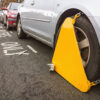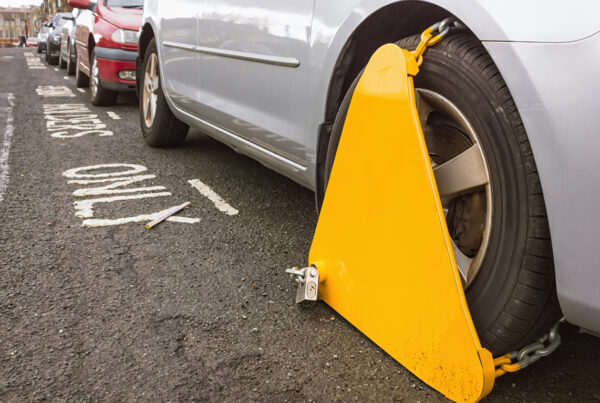I’ve bought a new car and want to return it? What are my rights?
When you buy a new car you just want to look forward to many miles of happy driving but an increasing number of motorists are finding that problems with the vehicle are interrupting that enjoyment. And a common question that arises is when are the issues small enough to be resolved or big enough to result in the extreme option of returning or rejecting the car, and what are your rights?
Buying a car in Northern Ireland is a relatively simple process when everything runs smoothly.
But when things go wrong, local car buyers can be left frustrated and with many questions.
Today, we’re focusing on your consumer rights to reject a car you have bought from a car dealer or trader.
What are the laws in Northern Ireland about rejecting a car?
The Consumer Rights Act (2015) made things a lot more straightforward for car buyers who find fault with the vehicle they have purchased.
Simply put, car buyers have the right to reject a car within the first 30 days of ownership.
Also, car buyers returning a car within the first 30 days are entitled to a full refund.
What are some of the reasons for rejecting a car?
There is no legal right to reject a car because you have changed your mind after purchase or due to minor faults or minor cosmetic defects which may be remedied by the seller.
Reasons for rejecting a car include:
- that the car does not meet the description detailed in the advertisement for sale or in the description provided orally by the seller when you bought it.
- that the car is not of satisfactory quality taking account of its age and mileage
- that the car is not fit for purpose for example where the car features a mechanical fault which affects its’ roadworthiness
Regardless of the reason for rejection, it is best to notify the seller of any faults or issues you have with the car within 30 days of purchase and to keep a record of all verbal and written communications with the seller.
What if I buy a car from a private seller?
The Consumer Rights Act does not apply to private sales, so it can be extremely difficult to seek any remedies when you have bought a vehicle from another private person.
What does The Consumer Rights Act say about the relevant time periods?
Under the Consumer Rights Act t the time frames you need to know about are:
Within 30 days from the date you bought the car with a significant fault that was present at the date of purchase, you can reject it and you will be entitled to a full refund.
You have the right to accept or decline an offer of repair or replacement vehicle by the seller.
If, as part of the purchase, you have part-exchanged a previously owned car against the new one, you will not get it back.
You will instead be entitled to the full invoice price of the car, including VAT, road tax etc.
The dealer must arrange to collect your vehicle, and you should not be charged for the return.
After 30 days and within the first six months from purchase you have to give the dealer one attempt to fix the problem before you can move to an outright rejection of the vehicle. If the dealer does not agree that there was a problem with the vehicle when you purchased it then it is up to them to prove this.
Again, if you’ve part-exchanged a previous car towards your current one, you will not get the old car back but get a cash value for the new vehicle.
It is unlikely you will get full value for the car as the dealership can rightly factor in time elapsed, mileage, wear and tear etc.
In this scenario the dealer must collect the vehicle, and you should not be charged a return cost or to arrange the return yourself.
After six months.
Under the Consumer Rights Act, you are legally entitled to pursue a rejection; however, it will be challenging to get a successful outcome as a buyer.
That’s because the law is now slightly more in favour of the dealer; the expectation is now on you to prove that the fault was present when you bought the car.
Factor in over six months of added mileage and the difficulty in proving your case increases.
What if I buy a car at an auction?
Auctions are a little different.
If you purchase a car at an auction, you do not have the same rights if the vehicle is “sold as seen”.
Before purchasing at auction, it is essential to read the auction’s Terms and Conditions of sale before committing to a purchase.
What else do I need to know?
If a vehicle bought by you features or develops a fault within 30 days rejection of the vehicle may not always be the appropriate or best solution as it could be that the dealer can resolve the issue identified to your satisfaction.
Whilst working with your dealer to resolve a fault may provide a satisfactory outcome for you, it is always recommended that you notify the detailer in writing as soon as you find a fault and that you keep a detailed record of all communication concerning the fault.
This is because rejecting a car isn’t always as simple as leaving the car back to the dealership and collecting X amount of money. Dealerships may challenge your rejection of the vehicle and may for example argue that the fault complained of is not of sufficient significance so as to warrant rejection, which ultimately could lead you to seek legal advice.
The take-home message.
The Consumer Rights Action is there to protect you and some simple steps taken when purchasing a car can facilitate this protection to include taking the following steps:
Before buying a car, make sure you look around the vehicle thoroughly – inside and out – and if you can bring a mechanic with you, that’s a great idea.
If you purchase a car and find issues afterwards, take photos of the problem and contact the dealership straight away.
Resist driving the car (unless necessary) if you plan to reject the vehicle.
Work with the dealership if you have identified issues that can easily be fixed.
The best scenario is always to work with the seller to avoid costly, time-consuming legal cases.
Remember to get all assurances from a dealership in writing; avoid telephone conversations and specifically ask for all communications to be sent to you via email.










